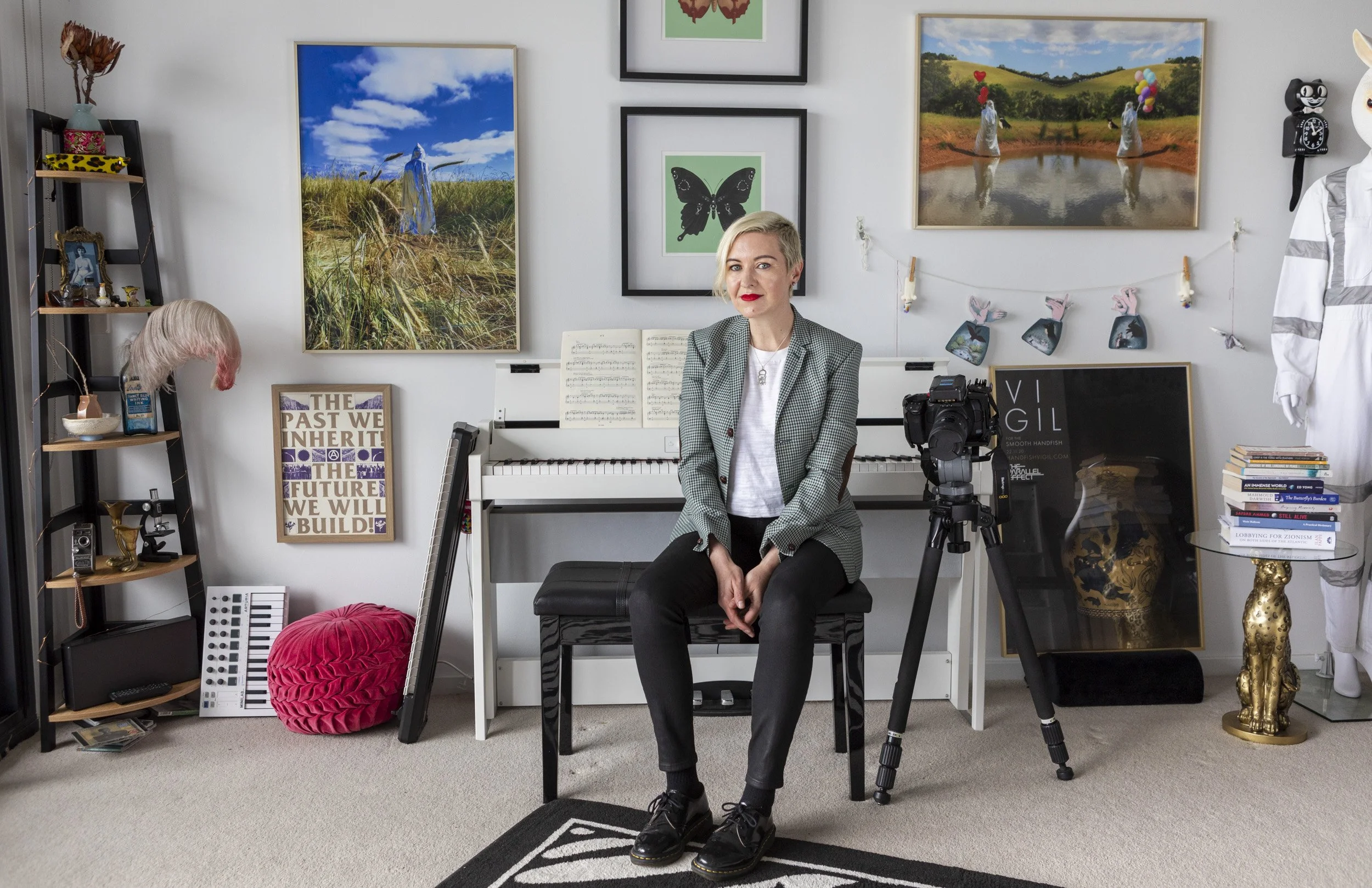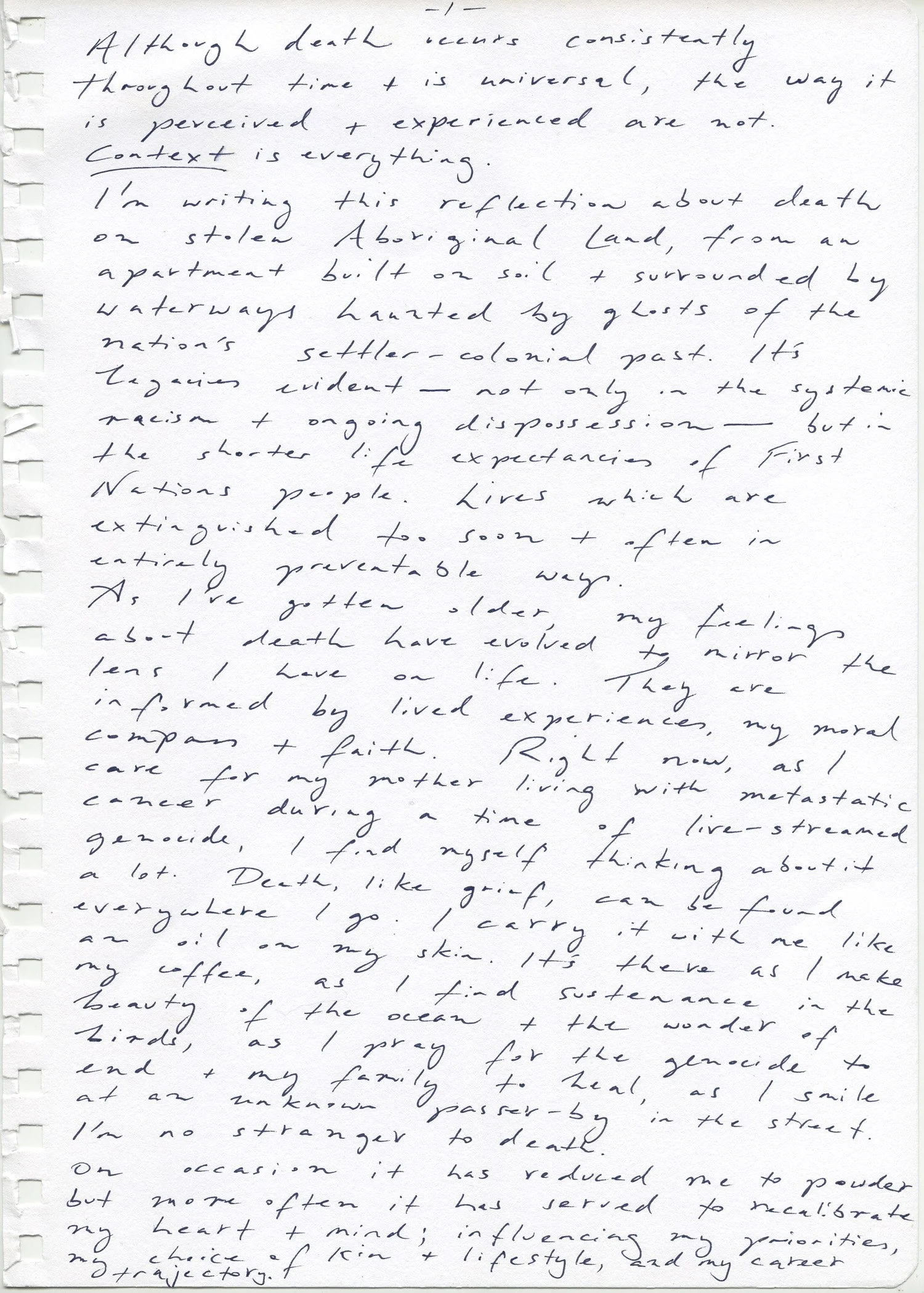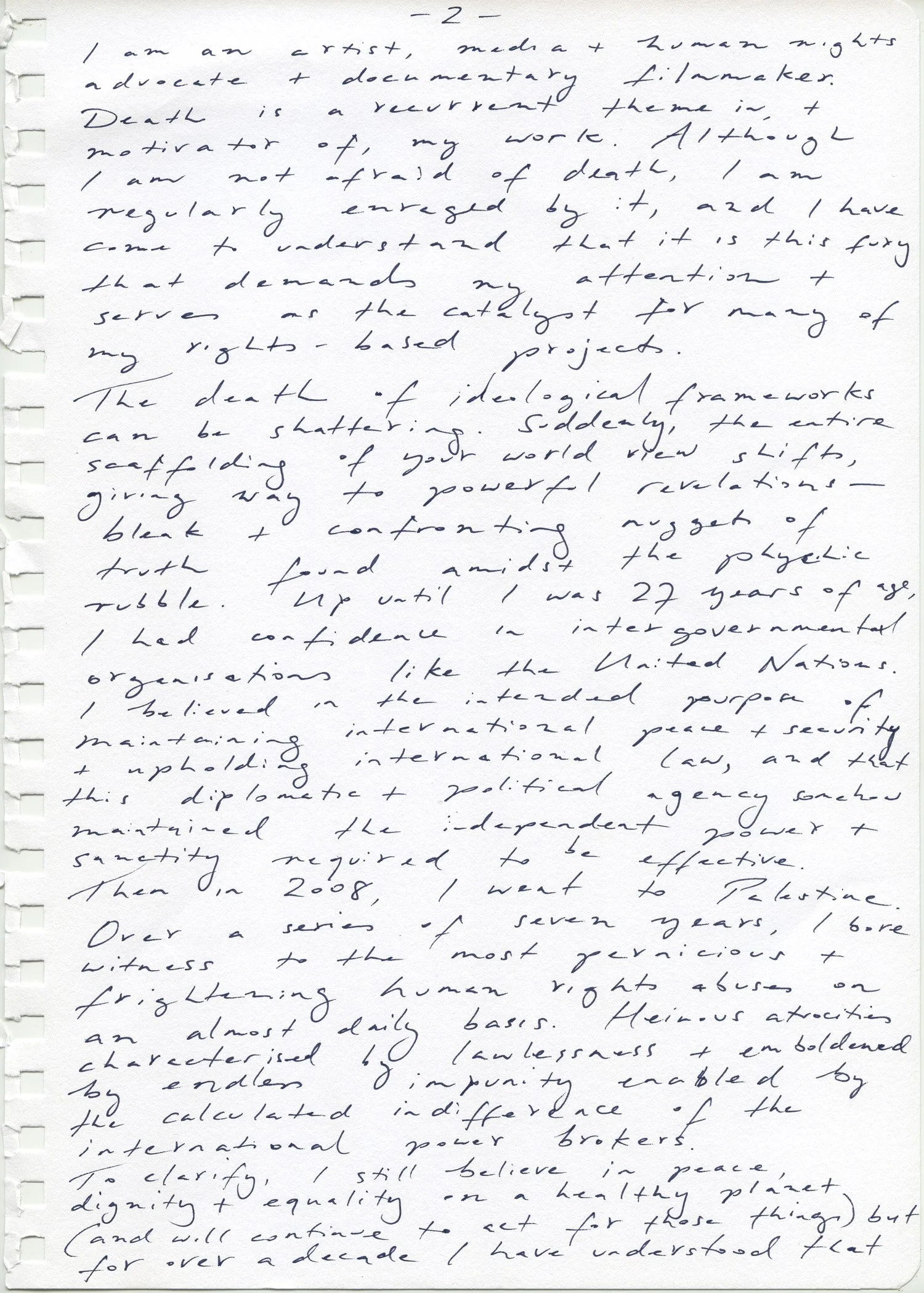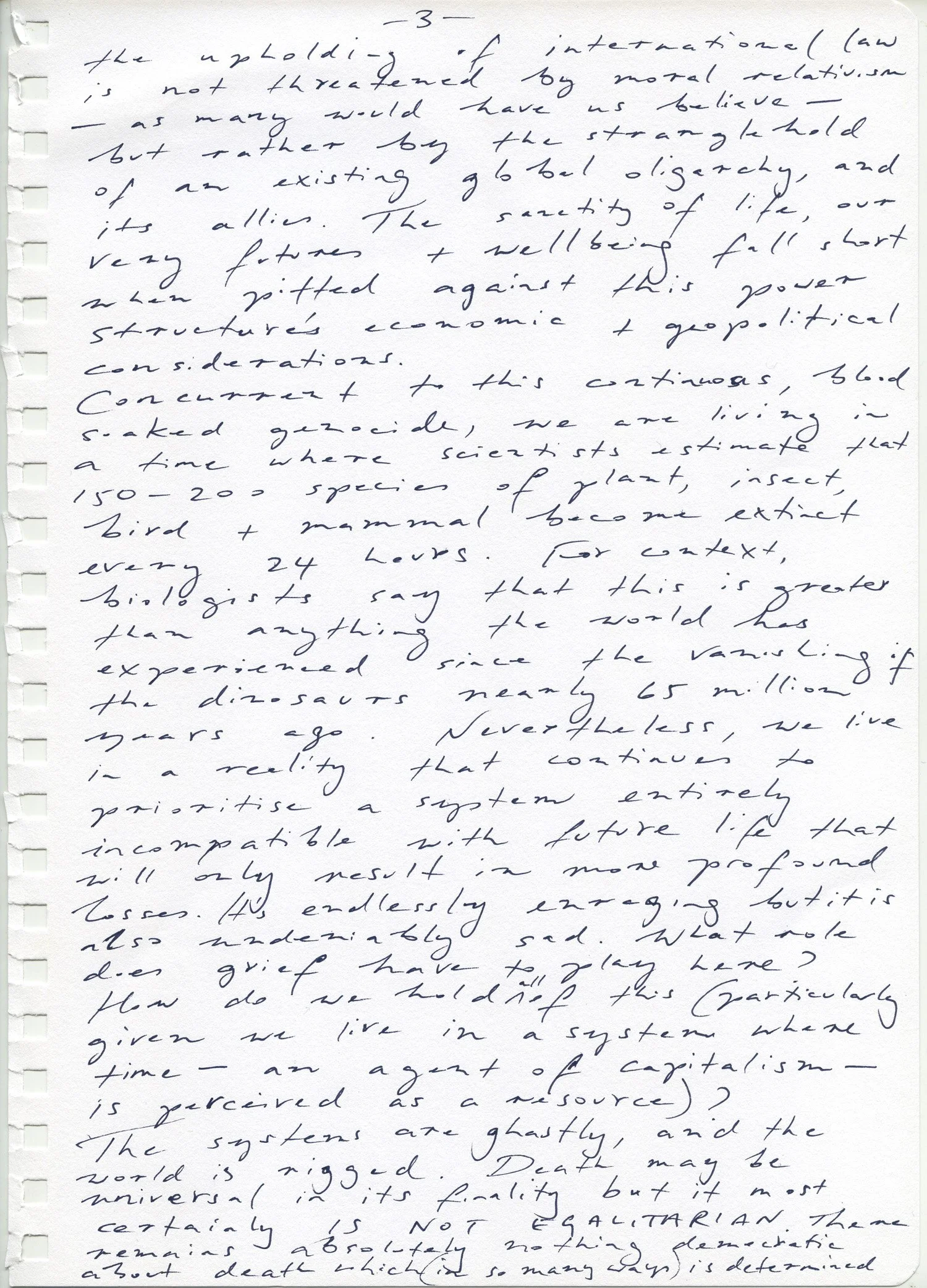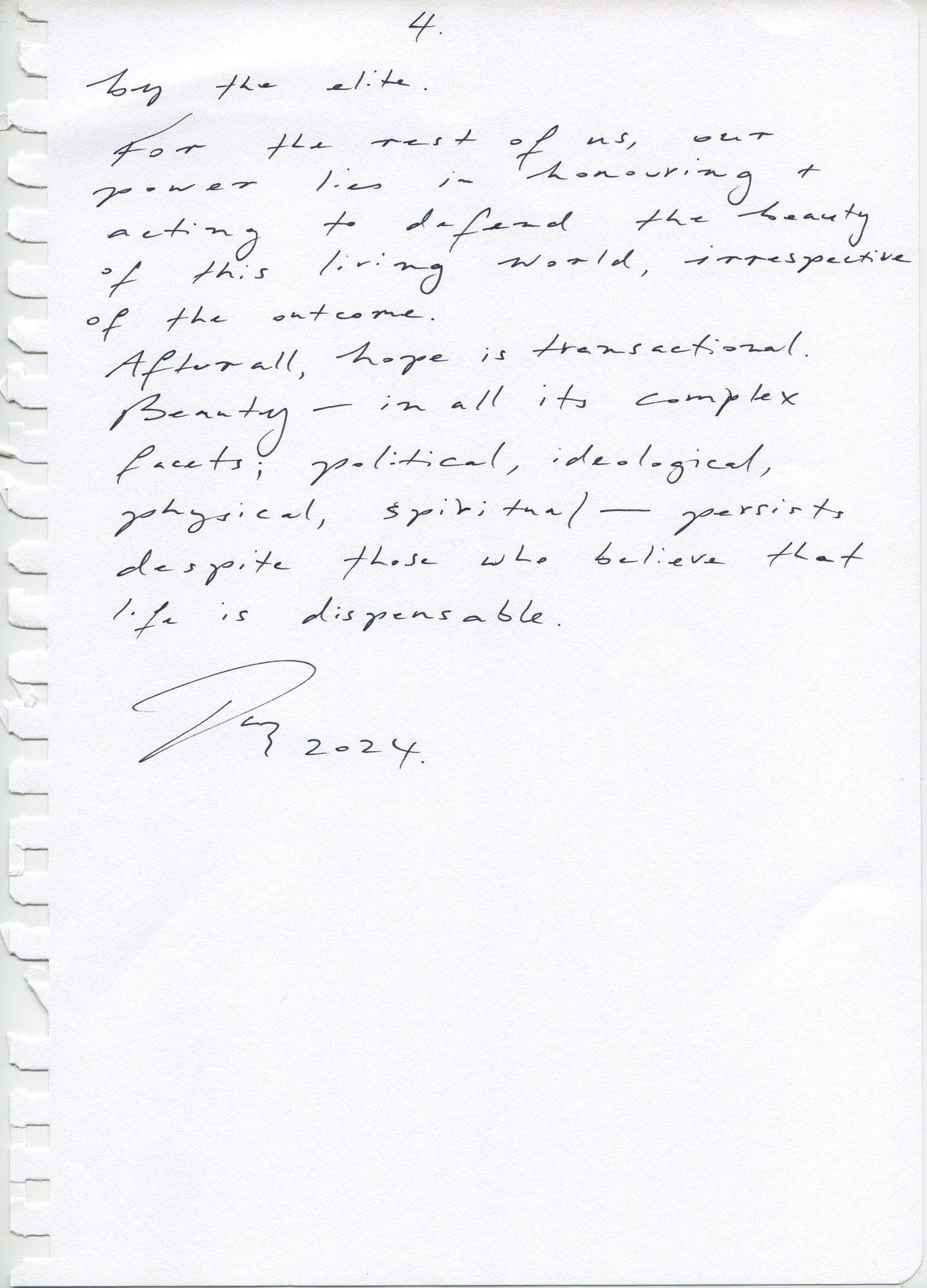Daz Chandler | Artist / Media and Human Rights Advocate / Documentary Filmmaker
Although death occurs consistently throughout time and is universal, the way it is perceived and experienced are not. Context is everything. I’m writing this reflection about death on stolen Aboriginal land, from an apartment built on soil and surrounded by waterways haunted by ghosts of the nation’s settler-colonial past. Its legacies evident—not only in the systemic racism and ongoing dispossession—but in the shorter life expectancies of First Nations people. Lives which are extinguished too soon and often in entirely preventable ways.
As I’ve gotten older, my feelings about death have evolved to mirror the lens I have on life. They are informed by lived experiences, my moral compass and faith. Right now, as I care for my mother living with metastatic cancer during a time of live-streamed genocide, I find myself thinking about it a lot.
Death, like grief, can be found everywhere I go. I carry it with me like an oil on my skin. It’s there as I make my coffee, as I find sustenance in the beauty of the ocean and the wonder of birds, as I pray for the genocide to end and my family to heal, as I smile at an unknown passer-by in the street.
I’m no stranger to death. On occasion it has reduced me to powder but more often it has served to recalibrate my heart and mind; influencing my priorities, my choice of kin and lifestyle, and my career trajectory. I am an artist, media and human rights advocate and documentary filmmaker. Death is a recurrent theme in, and motivator of, my work. Although I am not afraid of death, I am regularly enraged by it, and I’ve come to understand that it is this fury that demands my attention and serves as the catalyst for many of my rights-based projects.
The death of ideological frameworks can be shattering. Suddenly, the entire scaffolding of your world view shifts, giving way to powerful revelations—bleak and confronting nuggets of truth found amidst the psychic rubble. Up until I was 27 years of age, I had confidence in intergovernmental organisations like the United Nations. I believed in the intended purpose of maintaining international peace and security and upholding international law, and that this diplomatic and political agency somehow maintained the independent power and sanctity required to be effective.
Then in 2008, I went to Palestine. Over a period of seven years, I bore witness to the most pernicious and frightening human rights abuses on an almost daily basis. Heinous atrocities characterised by lawlessness and emboldened by endless impunity enabled by the calculated indifference of the international power brokers.
To clarify, I still believe in peace, dignity and equality on a healthy planet (and will continue to act for those things) but for over a decade I have understood that the upholding of international law is not threatened by moral relativism— as many would have us believe—but rather by the stranglehold of an existing global oligarchy, and its allies. The sanctity of life, our very futures and wellbeing fall short when pitted against this power structure’s economic and geopolitical considerations.
Concurrent to this continuous, blood-soaked genocide, we are living in a time where scientists estimate that 150-200 species of plant, insect, bird and mammal become extinct every 24 hours. For context, biologists say that this is greater than anything the world has experienced since the vanishing of the dinosaurs nearly 65 million years ago. Nonetheless, we live in a reality that continues to prioritise a system entirely incompatible with future life that will only result in more profound losses. It’s endlessly enraging but it is also undeniably sad. What role does grief have to play here? How do we hold all of this (particularly given we live in a system where time—an agent of capitalism—is perceived as a resource)?
The systems are ghastly, and the world is rigged. Death may be universal in its finality, but it most certainly is not EGALITARIAN. There remains absolutely nothing democratic about death which (in so many ways) is determined by the elite.
For the rest of us, our power lies in honouring and acting to defend the beauty of this living world, irrespective of the outcome. After all, hope is transactional. Beauty—in all its complex facets; political, ideological, physical, spiritual—persists despite those who believe that life is dispensable.
—Daz Chandler (2024)
Editor’s note: Daz Chandler is the Founder of The Parallel Effect, a collective whose creative interventions respond to the crises of today by reimagining alternatives to the “present” we are living. In 2020, they curated a global congregation to collectively honour the species we’re losing each day, the intersectional nature of the climate crisis, the unwillingness of those in the power seats to do what is required and the very rational grief that stems from all of those things. Called ‘Vigil for the Smooth Handfish’, the event features 27 unique contributions by renowned thinkers, artists, musicians and scholars from communities across the globe. Further information: https://www.paralleleffect.com/vigil.
The Death Letter Project welcomes your comments and feedback. Please feel free to leave a comment on our Facebook page or alternatively submit a message below.
